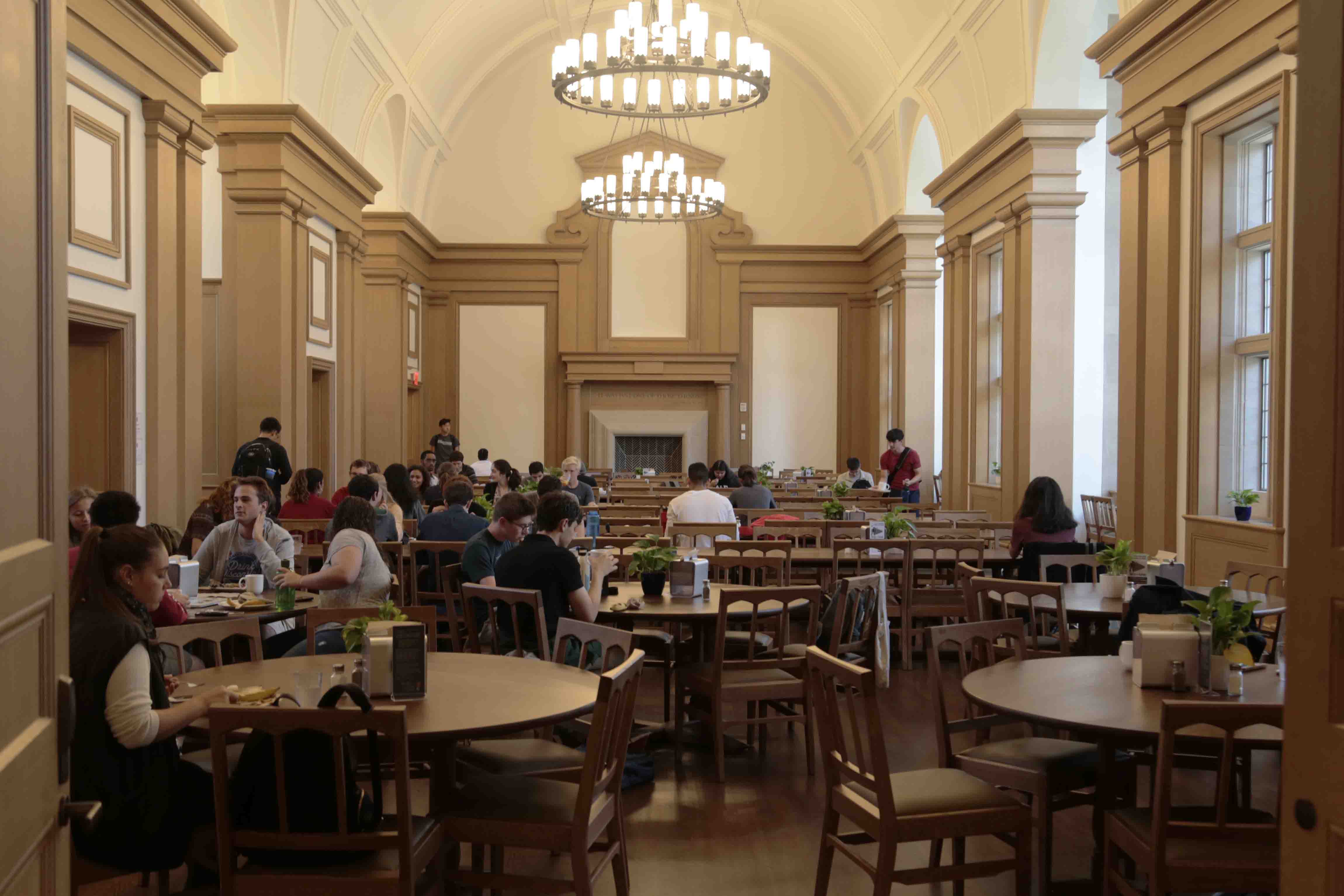
The start of the 2017–18 academic year brought with it not just changes in student population and curricular offerings, but new options for dining as well.
In anticipation of the opening of two new residential colleges and the closure of Commons, Yale Hospitality instituted a number of changes to facilitate dining hall traffic flow and offer lunch services during more hours of the day.
“While it is a fact that we have sufficient capacity to serve our students and faculty in current operations — we have been serving dinner to all without concerns — Yale Hospitality took additional measures to further facilitate a smooth transition during the transformation period for the Schwarzman Center,” said Rafi Taherian, associate vice president of Yale Hospitality.
Taherian said an operational and planning task force was convened last year, comprised of “key functional leaders” in operations, facility management and communications, as well as chefs and management personnel from various residential colleges. The task force, which was initialized in fall 2016, developed plans according to a specific timeline and set of deliverables, he added.
“I was able to create a database to track status, communication and deliverables ensuring a successful course for the project,” said Michael van Emmenes, director of business optimization. “All of which happened while Yale Dining served hundreds of thousands of meals to students and summer conferee guests.”
Over the summer, preparations intensified for the opening of the dining halls in Pauli Murray and Benjamin Franklin colleges, as well as the renovation of the Berkeley College dining hall.
Taherian said the openings of the new colleges coincided with the closure of Commons and the ongoing renovation of the Schwarzman Center, renovations of current dining halls, the opening of the Bulldog Cafe in the Hall of Graduate Studies and the “repurposing” of the space at 150 York St., which is now called “Yale on York.”
The facility, which will open Oct. 9, has a seating capacity of 650 and was envisioned to host some of the larger gatherings that would have previously been held at Commons.
Several projects have been initiated to accommodate Yale’s growing student body and encourage diners to allocate themselves more equally among dining spaces based on factors such as crowd size and wait time. The opening of the two new colleges will add 600 total seats to the residential dining system, while the renovation and redesign of the Berkeley dining hall allows for additional food service platforms and an extra 30 seats.
The dining halls in the two new colleges are state-of-the-art, according to Senior Director of Residential Dining Adam Millman.
“We have focused on bringing food production into the service area to create engagement between students and the culinary team by creating an open kitchen concept,” he said.
The open concept includes an “Al Forno” pizza oven, a European-style chef’s suite, self-serve ramen stations — known as the “Souper Bowl” — a mezze bar and a salad station, he added. The dining halls also offer private seating nooks, which Millman said preserve Yale’s elegant dining experience.
The servery in Silliman College has also been redesigned, Taherian said, to provide double-sided serving areas and increase capacity by 50 seats.
“Expanded student body is not a concern, as Benjamin Franklin and Pauli Murray can accommodate their students and then some,” he said.
Other changes, designed to make meals more accessible, are in various stages of implementation. For instance, the online “Meals2Go” lunch program has expanded, allowing orders to be placed via the Yale Dining app and picked up in any dining hall.
The Yale Dining Fast Track app, which provides estimates of current seats filled in each dining hall based on the number of swipes, is in the process of being upgraded to show specific wait times per location.
To more evenly distribute diners across cafeterias, a Destination Dining program is being developed with the goal of creating “an incentive to increase the usage of less frequented dining halls,” according to Taherian.
Additionally, Davenport’s dining hall will open half an hour early for lunch, and Trumbull and Hopper dining halls will remain open for lunch service until 2:30 p.m. each day.
Yale Dining will continue to enhance the experiences of student diners, according to Taherian, who said his team has planned numerous events around campus for the year. Events will include food conversations, foodie events, farm tours, a fall festival and pop-up events.
Yale Dining serves more than three million meals each year to students, parents, faculty, staff and campus visitors.
Rachel Treisman | rachel.treisman@yale.edu | @rachel_treisman







